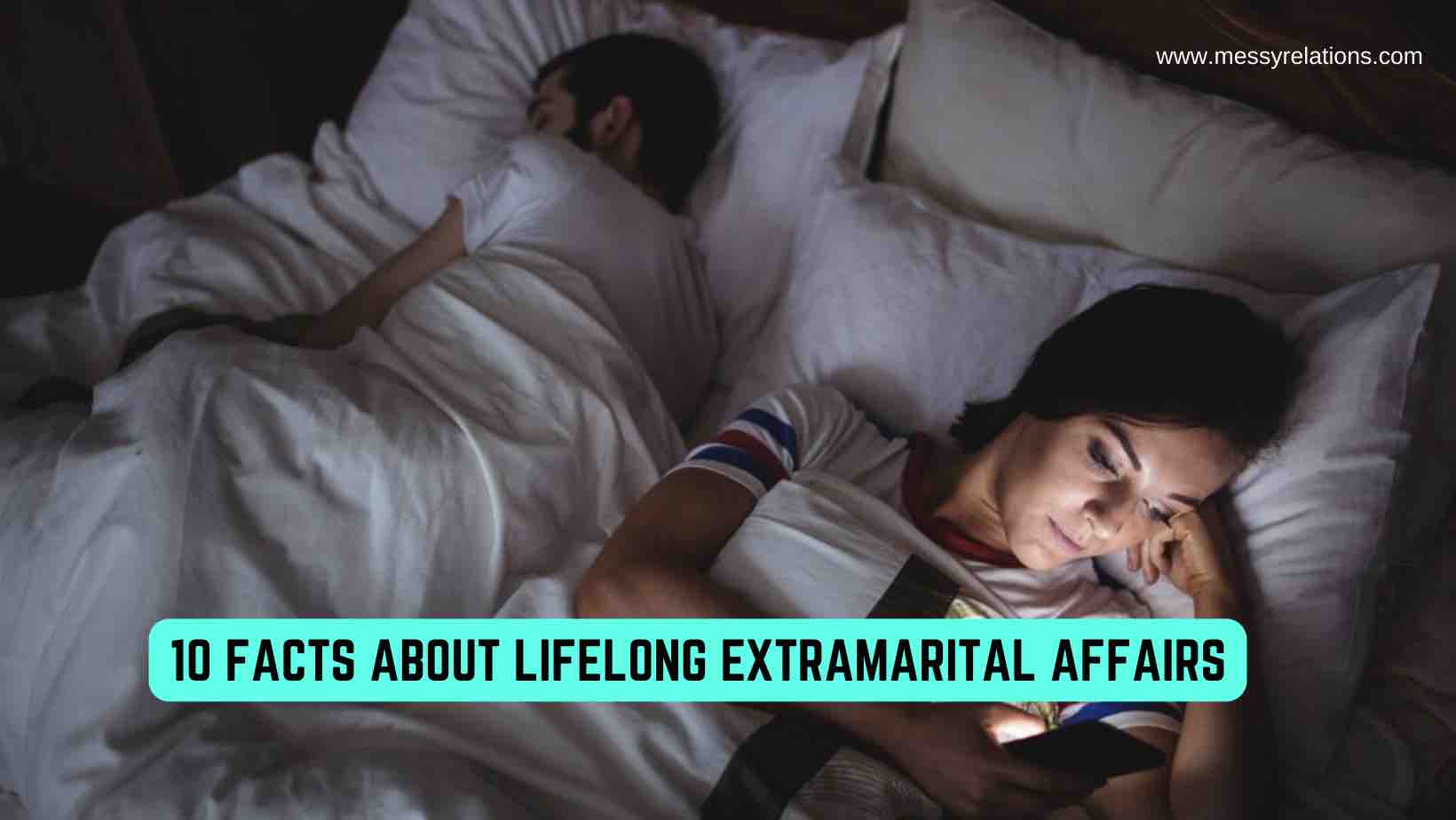Understanding romantic relationships can often be complex, particularly when it involves identifying subtle negative traits in your partner. One such challenging situation is recognizing when you’re dealing with a covert narcissist girlfriend. Unlike overt narcissism, which is blatant and easy to spot, covert narcissism in a girlfriend can be elusive and deeply concealed under layers of seemingly normal behavior. We aim to guide you in identifying the signs that you may be in a relationship with a covert narcissist girlfriend, using real-life examples and psychological insights.
1. She Uses Subtle Manipulation
The first sign of a covert narcissist girlfriend is her use of subtle manipulation. Unlike overt narcissists who use blatant manipulation, a covert narcissist girlfriend employs underhanded tactics. She might guilt-trip you for spending time with friends or subtly coerce you into making decisions that favor her. Her manipulative behavior is often hard to pinpoint because it is cloaked in the guise of care or concern.
2. She Has Passive-Aggressive Attitude
Another sign of a covert narcissist girlfriend is passive-aggressive behavior. She may not openly confront you about issues but will express her discontent in indirect ways. This could include giving you the silent treatment, making sarcastic remarks, or subtly undermining your efforts. Her passive-aggressiveness is a means of expressing hostility without direct confrontation.
3. She Uses Victim Mentality
A covert narcissist girlfriend often plays the victim in various scenarios. She portrays herself as the aggrieved party, irrespective of the situation. This could manifest in her twisting events to make it seem like she’s always the one being wronged, thereby gaining sympathy and shifting blame away from herself.
4. She Uses Emotional Withdrawal as Punishment
If your girlfriend emotionally withdraws or withholds affection as a form of punishment, it’s a red flag of covert narcissism. This behavior is manipulative, aiming to control or punish you by depriving you of emotional intimacy. A covert narcissist girlfriend uses emotional withdrawal strategically to get what she wants or to make you feel guilty.
5. She Has Constant Need for Validation
A covert narcissist girlfriend constantly seeks validation and attention, though she may do so subtly. She may fish for compliments indirectly, react negatively to criticism, or seem overly affected by how others perceive her. This constant need for validation stems from her deep-seated insecurities and self-esteem issues.
6. She Lacks Genuine Empathy
A lack of genuine empathy is a key characteristic of a covert narcissist girlfriend. She may struggle to understand or validate your feelings, especially if they do not align with her own needs or views. Her lack of empathy can manifest in selfish behaviors and a disregard for your emotional needs.
7. She Uses Gaslighting to Assert Control
Gaslighting, a form of psychological manipulation where the victim is made to doubt their reality, is a common tactic used by a covert narcissist girlfriend. She may deny events, trivialize your feelings, or twist facts to confuse you, thereby maintaining control and dominance in the relationship.
8. She Is Secretive
Evasiveness and a secretive nature are also indicative of a covert narcissist girlfriend. She may be vague about her whereabouts, withhold information, or lie about seemingly minor things. This secretive behavior creates an imbalance in the relationship, leaving you feeling uncertain and mistrustful.
Knowing about these signs in your relationship can be the first step in addressing the challenges of being with a covert narcissist girlfriend. It’s crucial to approach the situation with understanding but also with a clear sense of your boundaries and self-respect. Dealing with a covert narcissist can be emotionally draining, and in some cases, seeking professional advice or therapy may be necessary to navigate the relationship healthily. Remember, a relationship should be a source of mutual support and happiness, not a constant source of stress and confusion. If you find yourself continually struggling, it might be time to reevaluate the relationship and consider your well-being.
FAQs on Identifying and Dealing with a Covert Narcissist Girlfriend
- What are the most common signs of a covert narcissist girlfriend?
- The most common signs include subtle manipulation, passive-aggressive behavior, playing the victim, emotional withdrawal as a form of punishment, a constant need for validation, lack of genuine empathy, gaslighting tactics, and being secretive or evasive. These traits collectively paint a picture of someone who is emotionally manipulative and self-centered in a discreet way.
- How can I deal with a covert narcissist girlfriend without escalating the situation?
- Dealing with a covert narcissist girlfriend requires careful navigation. You should maintain clear and assertive communication, set firm boundaries, avoid engaging in their manipulative tactics, and prioritize your emotional well-being. If the situation becomes too challenging, seeking professional advice or therapy might be beneficial.
- Can a relationship with a covert narcissist girlfriend improve over time?
- While improvement is possible, it largely depends on the narcissist’s willingness to acknowledge their behavior and seek help. For many, this self-awareness and desire for change are challenging due to the nature of narcissism. Consistent efforts, clear communication, and professional guidance can contribute to improvement.
- What should I do if I feel emotionally drained in my relationship with a covert narcissist girlfriend?
- If you feel emotionally drained, it’s important to take a step back and assess the impact of the relationship on your well-being. Engaging in self-care activities, seeking support from friends or a therapist, and setting boundaries are crucial steps. Sometimes, reevaluating the relationship’s viability is necessary for your mental health.
- Is it possible to have a healthy relationship with a covert narcissist?
- Having a healthy relationship with a covert narcissist can be extremely challenging due to their manipulative and emotionally draining behavior. It requires constant effort, communication, and often professional assistance. The key is to maintain your sense of self and set boundaries to protect your emotional health.
- How can I effectively communicate with my covert narcissist girlfriend?
- Effective communication involves being clear, direct, and sticking to factual statements. Avoid emotional confrontations and set clear boundaries in conversations. It’s also important to not get drawn into their manipulative narratives and maintain a calm demeanor.
- Should I confront my covert narcissist girlfriend about her behavior?
- Confronting a covert narcissist about their behavior should be approached with caution. Direct confrontation may lead to defensive or manipulative responses. If you choose to address the behavior, do so in a calm and factual manner, focusing on specific behaviors rather than labeling them as a narcissist.
- Can therapy help someone dealing with a covert narcissist girlfriend?
- Yes, therapy can be highly beneficial for those dealing with a covert narcissist girlfriend. Therapy provides a safe space to express feelings, gain insights, develop coping strategies, and receive guidance on managing the relationship.
- How do I maintain my mental health while in a relationship with a covert narcissist?
- Maintaining your mental health involves setting boundaries, practicing self-care, seeking support systems, and possibly engaging in therapy. It’s crucial to have space where you can recharge and gain clarity away from the narcissist’s influence.
- What are the long-term impacts of being in a relationship with a covert narcissist girlfriend?
- Long-term impacts can include emotional exhaustion, lowered self-esteem, anxiety, and possible trauma. Being in such a relationship can also affect future relationships due to trust issues and emotional scars. Addressing these impacts through therapy and support is often necessary for healing.




